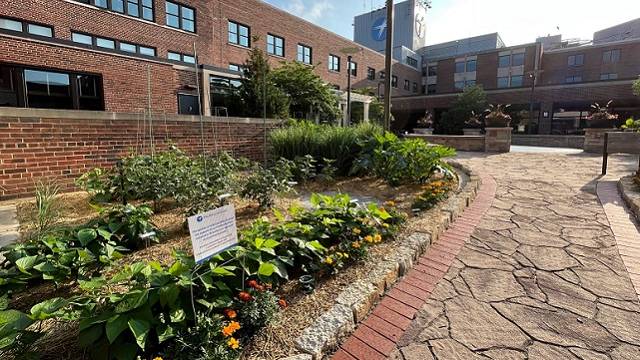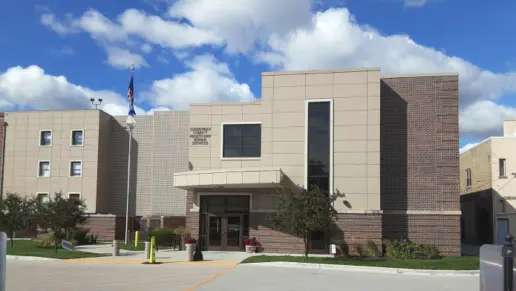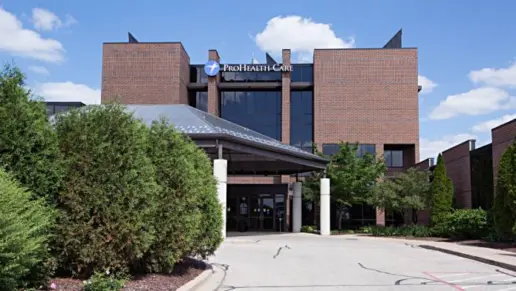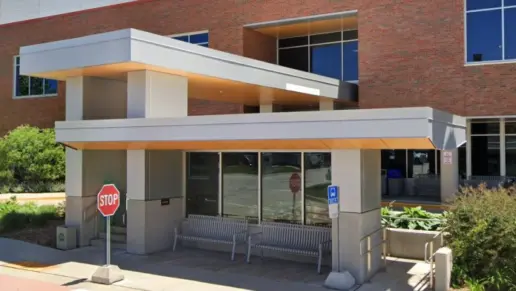If you want good care, DON'T go here. The doctors here are lazy and rude, so it takes forever to get attention. Also, the front intake staff acts uninterested most of the time.
About ProHealth Urgent Care Brookfield
ProHealth Care in Brookfield, Wisconsin, is a facility specializing in mental health and behavioral health issues, including substance abuse. Levels of care offered include medication assisted treatment, outpatient, partial hospitalization, and an inpatient program. Treatment is available for young adults, men, women and elderly individuals of all ethnicities and walks of life.
ProHealth offers medication assisted treatment in combination with behavioral therapies to prevent relapse for a holistic and sustainable recovery. This is available as part of its outpatient, partial hospitalization and inpatient programs. Specialized services are available for expectant mothers.
ProHealth offers dual diagnosis treatment for clients struggling with concurrent mental and physical health issues alongside their addiction. Outpatient treatment involves weekly individual and group therapy along with couple and family therapy.
The partial hospitalization program takes place five days a week for up to seven hours a day. This program is only available for adults aged 18 and over, with clients referred to ProHealth Care’s Waukesha Memorial Hospital, just a 20 minute drive from Brookfield. Treatment may include prescription medication to manage symptoms, alongside individual, group and family therapy. Length of treatment will depend on the individual, but typically clients attend the program for around two weeks.
Inpatient psychiatric care takes place at ProHealth’s Waukesha location, and like the partial hospitalization program is only available to adults aged 18 and older. The program is designed to provide round the clock care for addiction, alongside any concurrent mental health issues through a personalized recovery plan. Inpatient drug rehab treatment includes individual, group and family therapy alongside prescription medications where needed. Spiritual care is also available to provide a listening ear and support to both patients and their families. Length of inpatient care is determined on an individual basis by care teams, based on individual needs.
ProHealth Care accepts self pay and financial assistance applications for eligible individuals. They also accept Medicaid, Medicare and many commercial insurance options including Aetna, Alliance, Anthem, Centivo, Quartz, WEA, WPS, UnitedHealthcare and Humana. Clients are advised to check coverage with individual providers regarding out of network benefits.
Rehab Score
Gallery

Location
Accepted Insurance















Other Forms of Payment
Private insurance refers to any kind of healthcare coverage that isn't from the state or federal government. This includes individual and family plans offered by an employer or purchased from the Insurance Marketplace. Every plan will have different requirements and out of pocket costs so be sure to get the full details before you start treatment.
Self-pay involves paying for treatment out of your own pocket. You can use savings or credit, get a personal loan, or receive help from family and friends to fund your treatment. If you don't have insurance or your insurance plan doesn't cover a specific program, self-pay can help ensure you still get the care you need.
Financial aid can take many forms. Centers may have grants or scholarships available to clients who meet eligibility requirements. Programs that receive SAMHSA grants may have financial aid available for those who need treatment as well. Grants and scholarships can help you pai for treatment without having to repay.
Sliding scale payments are based on a client's income and family size. The goal is to make treatment affordable to everyone. By taking these factors into account, addiction recovery care providers help ensure that your treatment does not become a financial burden to you or your family, eliminating one barrier to care.
Medicare is a federal program that provides health insurance for those 65 and older. It also serves people under 65 with chronic and disabling health challenges. To use Medicare for addiction treatment you need to find a program that accepts Medicare and is in network with your plan. Out of pocket costs and preauthorization requirements vary, so always check with your provider.
Military members, veterans, and eligible dependents have access to specific insurance programs that help them get the care they need. TRICARE and VA insurance can help you access low cost or no cost addiction and mental health treatment. Programs that accept military insurance often have targeted treatment focused on the unique challenges military members, veterans, and their families face.
Medicaid is a state based program that helps lower-income individuals and families pay for healthcare. Medicaid covers addiction treatment so those enrolled can use their coverage to pay for rehab. When a program accepts Medicaid the client often pays very little or nothing out of their own pocket.
Addiction Treatments
Levels of Care
Treatments
The goal of treatment for alcoholism is abstinence. Those with poor social support, poor motivation, or psychiatric disorders tend to relapse within a few years of treatment. For these people, success is measured by longer periods of abstinence, reduced use of alcohol, better health, and improved social functioning. Recovery and Maintenance are usually based on 12 step programs and AA meetings.
The goal of drug rehab in Wisconsin is to address drug addiction as a complex issue that involves physical, mental, and relational aspects. During rehab, treatment focuses on each of these areas and gives you the tools you need to achieve and maintain sobriety.
Many of those suffering from addiction also suffer from mental or emotional illnesses like schizophrenia, bipolar disorder, depression, or anxiety disorders. Rehab and other substance abuse facilities treating those with a dual diagnosis or co-occurring disorder administer psychiatric treatment to address the person's mental health issue in addition to drug and alcohol rehabilitation.
A combined mental health and substance abuse rehab has the staff and resources available to handle individuals with both mental health and substance abuse issues. It can be challenging to determine where a specific symptom stems from (a mental health issue or an issue related to substance abuse), so mental health and substance abuse professionals are helpful in detangling symptoms and keeping treatment on track.
Opioid rehabs specialize in supporting those recovering from opioid addiction. They treat those suffering from addiction to illegal opioids like heroin, as well as prescription drugs like oxycodone. These centers typically combine both physical as well as mental and emotional support to help stop addiction. Physical support often includes medical detox and subsequent medical support (including medication), and mental support includes in-depth therapy to address the underlying causes of addiction.
Programs



Clinical Services
As a form of substance use treatment, cognitive behavioral therapy in Wisconsin offers several advantages. The duration of this talk therapy is typically 20 sessions or less, so it can be more affordable, with quicker results. It's also offered in multiple formats, so it can be tailored to meet individual needs.
The word dialectical describes the foundation of dialectical behavior therapy (DBT). Meaning "opposite," the word refers to the treatment's focus on both acceptance and change. While learning to accept where you are and the emotions you're feeling, you also learn to grow and change to establish healthier patterns in your life.
Group therapy is any therapeutic work that happens in a group (not one-on-one). There are a number of different group therapy modalities, including support groups, experiential therapy, psycho-education, and more. Group therapy involves treatment as well as processing interaction between group members.
In individual therapy, a patient meets one-on-one with a trained psychologist or counselor. Therapy is a pivotal part of effective substance abuse treatment, as it often covers root causes of addiction, including challenges faced by the patient in their social, family, and work/school life.
When conducting motivational interviewing in Wisconsin, therapists engage with their clients as equal partners. They don't provide unsolicited advice or confront clients. Instead, they ask questions and listen, with the goal of empowering clients to recognize any need for change and their ability to make those changes.
Trauma therapy addresses traumatic incidents from a client's past that are likely affecting their present-day experience. Trauma is often one of the primary triggers and potential causes of addiction, and can stem from child sexual abuse, domestic violence, having a parent with a mental illness, losing one or both parents at a young age, teenage or adult sexual assault, or any number of other factors. The purpose of trauma therapy is to allow a patient to process trauma and move through and past it, with the help of trained and compassionate mental health professionals.
Whether a marriage or other committed relationship, an intimate partnership is one of the most important aspects of a person's life. Drug and alcohol addiction affects both members of a couple in deep and meaningful ways, as does rehab and recovery. Couples therapy and other couples-focused treatment programs are significant parts of exploring triggers of addiction, as well as learning how to build healthy patterns to support ongoing sobriety.
Research clearly demonstrates that recovery is far more successful and sustainable when loved ones like family members participate in rehab and substance abuse treatment. Genetic factors may be at play when it comes to drug and alcohol addiction, as well as mental health issues. Family dynamics often play a critical role in addiction triggers, and if properly educated, family members can be a strong source of support when it comes to rehabilitation.
Proper nutrition is essential to addiction recovery. That's why nutrition therapy is often included in drug rehab in Wisconsin. This treatment will help you relearn good self care habits such as meal planning and maintaining a nutritious diet.
Recreational therapy in Wisconsin helps you find purpose in healthy activities that take the place of substance use in your life. These activities can include group games, gardening, yoga, and creative arts. The goal is to improve your physical fitness and mental health while providing an emotional outlet, factors that help you rebuild your life and maintain sobriety.
Creativity is inherently healing, and can help those in recovery express thoughts or feelings they might not otherwise be able to. Creative arts therapy can include music, poetry/writing, painting, sculpting, dance, theater, sandplay, and more. Unlike traditional art, the final product matters far less than the experience of creation and expression itself.
Amenities
-
Residential Setting
-
Private Rooms
Contact Information
195 Discovery Dr
Brookfield, WI 53045









